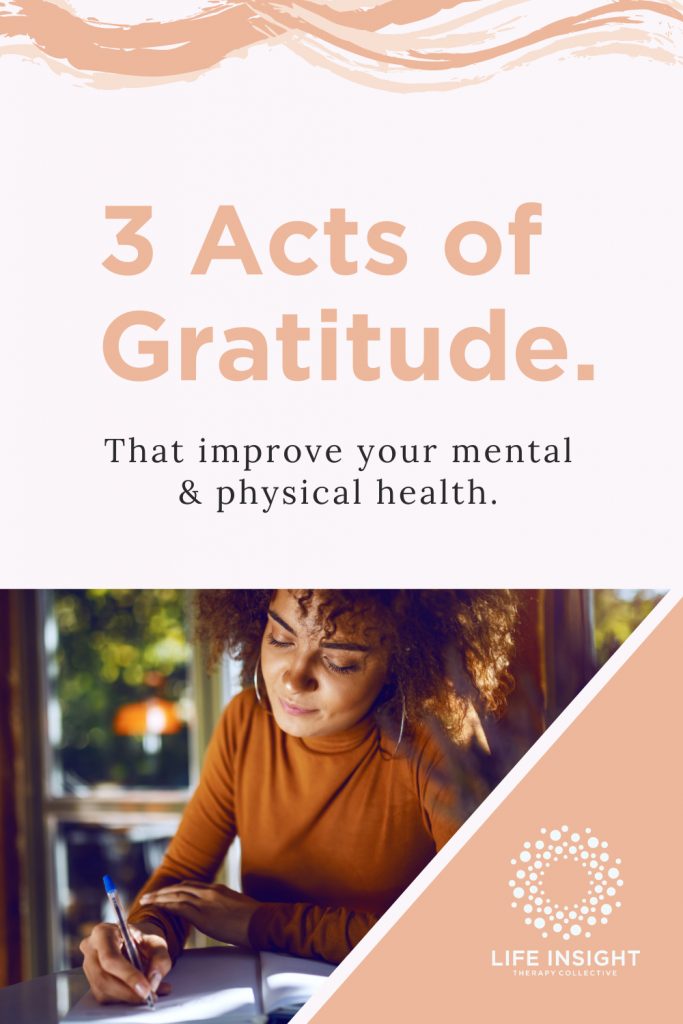3 Acts of Gratitude
We’ve been talking about gratitude all week (buckle up, it’s going to be all month!) and maybe you’re thinking “this isn’t for me”. Maybe you’re a natural pessimist or you struggle to experience gratitude because it’s hard to see past all of the difficulties in your life.
We hear you – it really can be difficult and, let’s face it, 2020 has been a challenge for all of us. We have all had to make difficult decisions, some of us have had to uproot our lives, and do harder things than we ever thought we would need to do.
Luckily, gratitude is a skill you practice. Most people are not naturally gifted at gratitude and it takes a little while for it to start to feel natural in any way. But we guarantee that if you really commit to practicing gratitude for the month of November, you will begin to see the positive benefits.
So, what does it mean to “practice gratitude”? Gratitude is more than just an emotion or state of mind.
grat·i·tude
/ˈɡradəˌt(y)o͞od/
the quality of being thankful; readiness to show appreciation for and to return kindness.
Gratitude starts with the recognition of what is good in your life, but doesn’t stop there. The practice of gratitude includes acknowledging the source of that goodness and expressing appreciation for it, maybe even to “pay it forward” by either returning it or sharing it with others.
Practicing acts of gratitude has surprising benefits on mental and physical health. We will get more into the science behind it in another post, but some of the benefits of practicing gratitude regularly are increased resilience to make it through difficult times, stronger relationships, better sleep, a stronger immune system, the ability to cope with anxiety, better academic and professional performance, and increased happiness!
Here are three simple ways you can practice gratitude today:
- Gratitude Notes – Journal, write it down! This is as simple as it sounds. Simply expressing gratitude in a private journal, notepad, sticky note, or whatever works for you does the trick!
- Speak words of gratitude – Say it out loud to yourself, your friend, or family. Creates a powerful sense of intimacy & vulnerability. This takes a little more work and may feel uncomfortable at first if you aren’t used to expressing yourself out loud to others. Start by picking something small and just saying it out loud to yourself, “I am grateful for another day to live.” Then, pick someone you are closest to first, and work your way out of your comfort zone as you wish. Perhaps this can be a regular practice with your best friend, sibling, or significant other if you want to practice this skill together.
- Gratitude letters – Write a letter to someone you are grateful for – send it via snail mail! This is a surprisingly powerful act of gratitude for both the giver and the receiver. Spend some time writing out your thoughts on a card or letter (or email if you wish) to 1-3 people this November. The benefits of this practice can last for up to a month after writing just one letter.
Whatever way you wish to start practicing gratitude, we hope you try at least one. Gratitude is a powerful act that benefits your health as well as the mental health of the person who you express gratitude to, and we can all use a little more love and appreciation this year.

Join Our Community.
Sign up for our quarterly newsletter with practice news, timely resources, staff highlights, and other helpful tidbits!
Recent Posts






